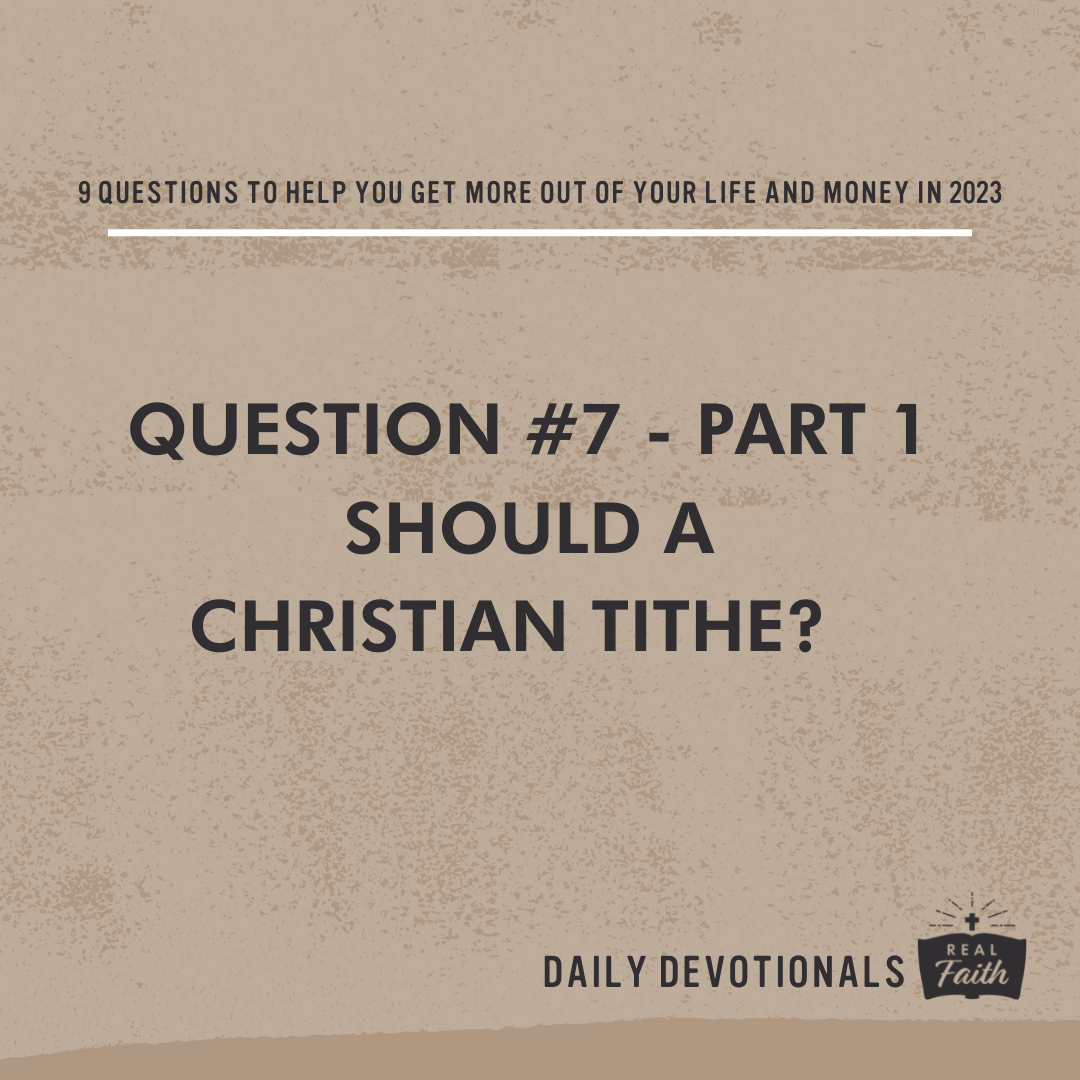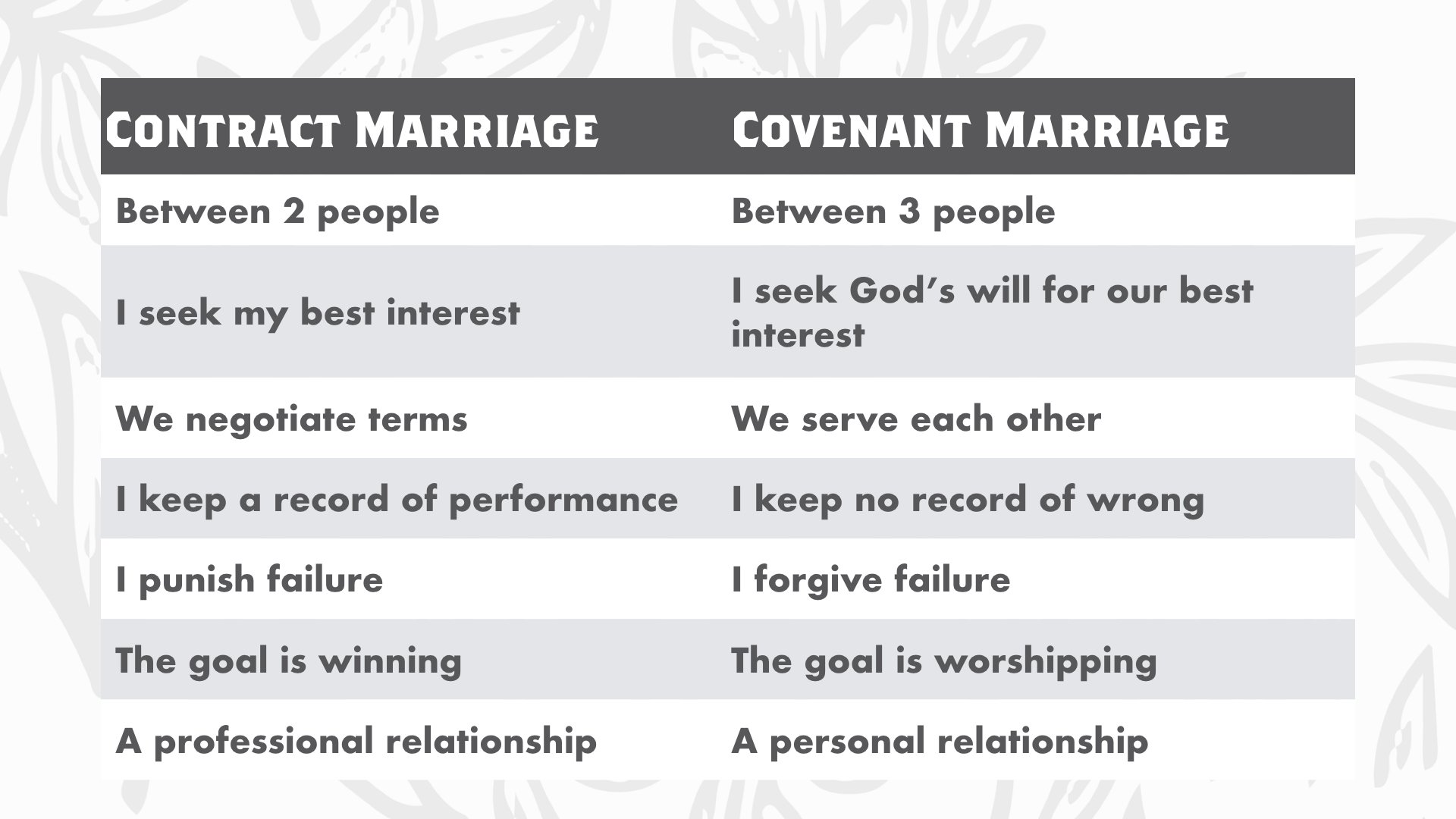Should Christians Tithe? Part 3
Malachi 3:8-12: “Will man rob God? Yet you are robbing me. But you say, ‘How have we robbed you?’ In your tithes and contributions. You are cursed with a curse, for you are robbing me, the whole nation of you. Bring the full tithe into the storehouse, that there may be food in my house. And thereby put me to the test, says the LORD of hosts, if I will not open the windows of heaven for you and pour down for you a blessing until there is no more need. I will rebuke the devourer for you, so that it will not destroy the fruits of your soil, and your vine in the field shall not fail to bear, says the LORD of hosts. Then all nations will call you blessed, for you will be a land of delight, says the LORD of hosts.”
At the end of the Old Testament is a strong word from God about the importance of tithing the full amount that is owed to God. But, this raises an important question about whether or not this command carries over to the New Covenant.
For starters, much of the Old Covenant was about law and what God demands of us and much of the New Covenant is about grace and what God does for us. Romans 6:14 is clear that today, “you are not under law but under grace”.
In the Old Covenant, believers were required to give of their first fruits meaning the first and best portion of your wealth went to God before anyone or anything else. Tithe literally means 10 percent and this was the amount to fund the ministry of the priests, which are the pastors in the Old Covenant (Numbers 18:21-29, 27:30). In addition to the 10 percent, there were various holiday festivals that needed to be funded, along with special offerings, and mercy ministry to the poor. Altogether, most scholars will estimate that 20-25 percent of one’s gross income was given back to the Lord.
In the New Covenant, the only real mention of tithing is on the lips of Jesus in Luke 11:42, “But woe to you Pharisees! For you tithe mint and rue and every herb, and neglect justice and the love of God. These you ought to have done, without neglecting the others.”
Did you catch Jesus’ words? He rebuked them for only giving their wealth without giving their works to help those in need. Jesus said that they should keep tithing and add to it relational ministry for the poor and powerless.
In the longest section on New Covenant giving (2 Corinthians 8-9), there are four principles for generosity. One, giving should be cheerful from someone who loves God and loves to give back to the God who gives generously. Two, giving should be sacrificial meaning it varies according to income. Three, giving should be regular in that it is planned out and not just occasionally in response to an appeal. Four, giving should be proportional so that as God increases someone’s standard of living, they should increase their standard of giving.
The New Testament never commands a believer to tithe. But, the New Testament repeatedly calls New Covenant believers to a higher standard than Old Covenant believers. We who live in the wake of the resurrection with the fullness of the Holy Spirit are called to a higher lifestyle. This explains why, for example, the Old Covenant forbids adultery of the hands and the New Covenant also forbids adultery of the heart. Similarly, the Old Covenant forbids murder and the New Covenant forbids murdering someone’s reputation with the words we speak about them. Therefore, God wants each of His people to meet with Him, search our own heart, make our own budget, and give whatever we believe is right for us in the sight of God while using the Old Covenant as a floor and not a ceiling.
If you are not familiar with the ministry of Dave Ramsey on faithful financial planning, it would be good for you to do so.




